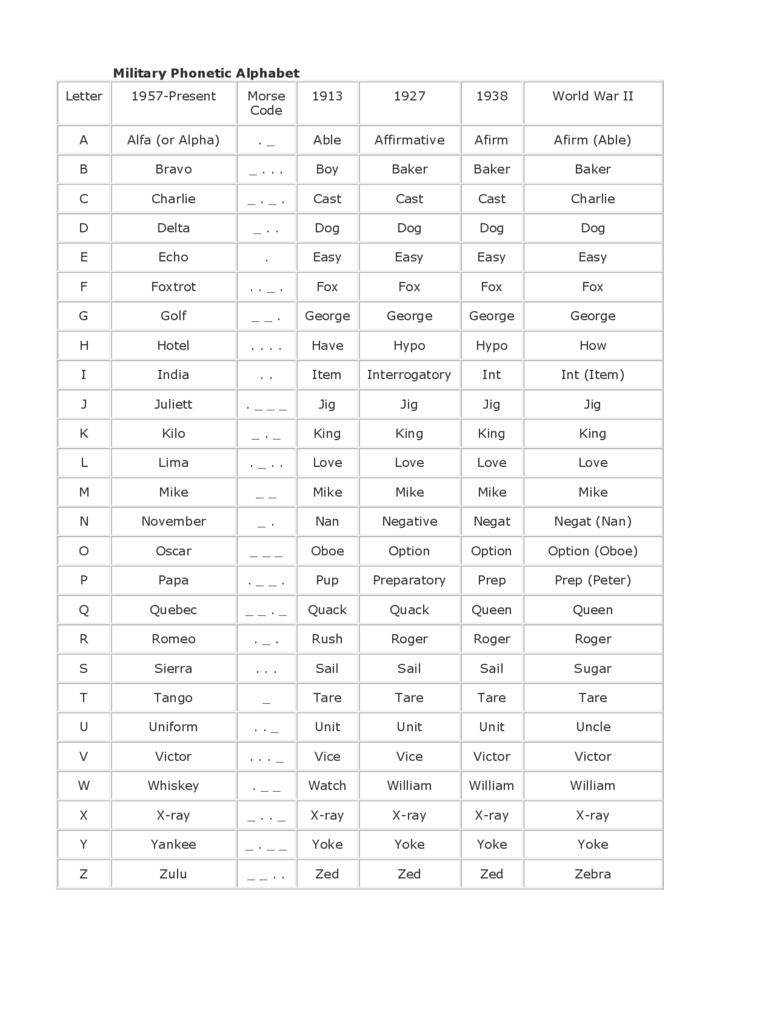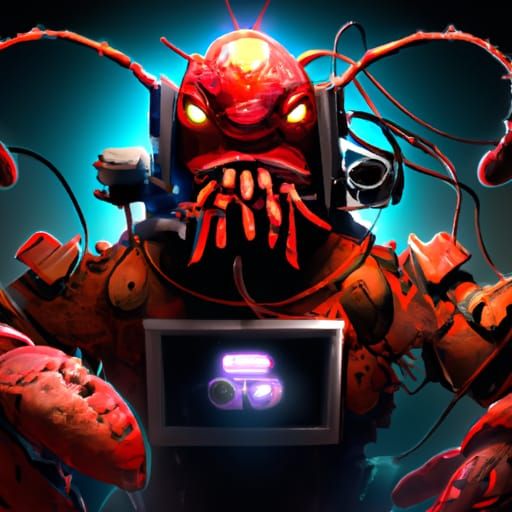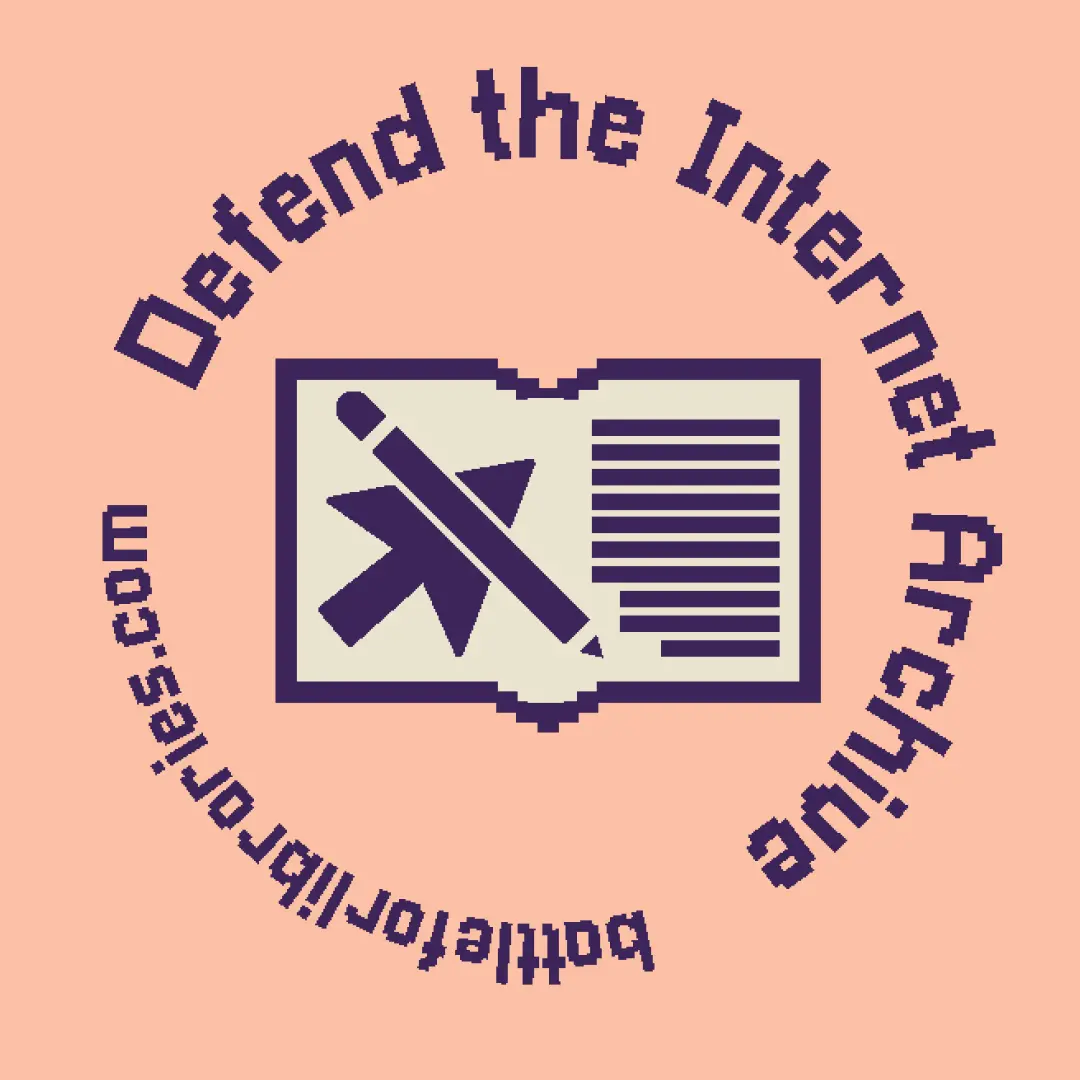All the cool kids learned it from the bloodhound gang.
Foxtrot Uniform Charlie Kilo.
I memorized it on my commute to work. I taped it to my dash and practiced on the license plates of the cars on the highway. I took it off my dash once I could read street signs out loud before passing them.
Instructions unclear, stuck under the twisted metal of my vehicle. Send paramedics.
Please use this and don’t make up your own shit on the fly. It’s very understandable both as a rep and a customer.
O as in opossum, p as in pnumonia, c as in Chicago.
K as in knight
Yeah it evolved to where it is now, no more changes.

WE COULD HAVE HAD QUACK FOR Q??? we were robbed
A better choice. If you have Fench Canadians in the forces it is Q as in Kaybec
What were they on with “interrogatory” for a damn vowel.
When both ends of a conversation are comfortable using the phonetic alphabet, you can easily hit 2+ characters per second, accurately.
In a phone conversation with a vendor they interrupted me while spelling to say something like "oh thank God you’re using the normal one and not shit like ‘frankfurter’ "
M as in Mancy
LANA
MAWP
Jesus, the helium!
K as in Knowlege G as in Gnome M as in Mnemonic P as in Pterodactyl W as in Wrist
deleted by creator
“No, I said P! P for pterodactyl!”
Edit: Though, that said, the point of the phonetic alphabet is they are very distinguishable words that sound nothing like one another. Even making out just “-a-a” you know it was papa, P. So as long as you know how to spell pterodactyl…
The NATO phonetic alphabet is incredibly useful, though it does suffer from some issues in similar sounds. During a recent high frequency (HF) worldwide competition (IARU-HF), weak-signal SSB stations sometimes had to spend a few minutes trying to complete a radio exchange because of similar sounding phonetic endings: “Was that whiskey one bravo alpha?”
“Negative, whiskey one tango alpha—TANGO alpha, over”
This happens so commonly, that many HF operators substitute other words in the same manner to enhance understanding: common ones are kilowatt, sugar, Germany, America, London, etc.
kilowatt, sugar, Germany, America, London
They’re great substitutes. I always found Quebec to be the most distinguishable because of geographic reference.
Golf to Germany makes sense as Golf it’s single syllable with yet another hard type O in it. Unlike Mike which could be missed, but the I and K crack/pop are strong sounds.
Kilowatt is interesting since the ‘watt’ is a backup sound if kilo is distorted. Honestly, Kardashian would be a good one as much as it pains me to say it.
Kilowatt trips me up still, I’ll copy KW maybe once in ~100 exchanges and not notice. It’s more common during high-volume exchanges. Getting better though!
I shudder at even typing Kardashian lol
“Klingon” is my go-to. Just the word, not the language.
If that fails, there’s always Kilimanjaro.
Whiskey tango foxtrot.
I was so close to editing my comment to be “whiskey one tango foxtrot” and now I regret not doing it lol
Kilowatt trips me up still, I’ll copy KW maybe once in ~100 exchanges and not notice. It’s more common during high-volume exchanges. Getting better though!
I shudder at even typing Kardashian lol
deleted by creator
The clip of Kitboga still cracks me up where the scammer gets angry for him using “J as in Jalapeño” 😂
 Someone made a whole book out of this joke
Someone made a whole book out of this jokeOmg, I need to waste my money on this.
The only one I don’t like is Z is for Zulu. I’ve never heard of that word before and it could easily be mistaken for Hulu. Z should be changed to Zebra.
Zulu could have been different, but has “no” (read:minimized) risk of being mistaken for hulu because hulu is not part of the phonetic alphabet. The phonetic alphabet is standardized because it must be, you can find rhymes for any one of these words. No list could be reasonably constructed that wouldn’t. Therefore the only reasonable choice is a standardized list that is designed to not self rhyme.
Zebra is written with S in some languages, so it would potentially cause trouble.
And some say zee brah and some say zeb brah
Zebra is much closer to Sierra and Papa, than Zulu is to any other word in that list - they are specifically chosen to be distinctly understandable in difficult-to-hear situations. And should they change it every time a new brand gets popular that’s kinda similar to one of the words?
I see. I’ve seen “zero” as well, and I also like that alternative.
Unfortunately that has overlap with Echo.
Ideally, these words are distinct even when most of the audio data is missing (as tends to happen with very bad connections/dropped packets). Worst case is only the “vocal” sounds coming through, as those are very common. Some people pronounce “zero” similarly to how “echo” is pronounced. “Zulu” has no such overlap.
“M, as in Mancy!”
Average Canadian: “Oh yeah, I got this one easy bud!”
Alright, for your final test: how do you spell Quebec?
AC: “Oh, for sure, that one there is easy! It’s, uh… Q, for… uh…”
…
AC: “Q… for… Kay-beck…”
Great fishin’ in Kew-beck
C’est facile non?
Egg

🥚 🏳️⚧️
Anal Colon Anal Butthole
When I was a kid, I was in a clan for Battlefield Vietnam that took itself waaaaay too seriously, had a good number of JROTC kids that insisted we all needed to know this, the NATO phonetic alphabet.
We were using teamspeak, had a session where the group leader stood us all in a line, and one by one wanted us to sound it off.
Guy 1: Alpha!
Guy 2 (me): Bravo!
Guy 3: Catholic!
Group Lead: sighs
shoots Guy 3 in the face
there are other versions that would be more suitable to the public….
Able, Baker, Charlie, Dog, Easy, Fox, George, How, Item, Jig, King, Love, Mike, Nan, Oboe, Peter, Queen, Roger, Sugar, Tare, Uncle, Victor, William, X-ray, Yoke, Zebra.
Adam, Boston, Chicago, Denver, Edward, Frank, George, Henry, Ida, John, King, Lincoln, Mary, New York, Ocean, Peter, Queen, Roger, Sugar, Thomas, Union, Victor, William, X-Ray, Young, Zero.
….
any common words will wordthe 2nd list isn’t great… Chicago and Sugar? N is two words, Mary and Henry are similar… I think part of the NATO one is you’d be able to tell even if you miss part of the word.
Also that the words are accurately pronounceable with a heavy accent. I think there’s an international version that considers more languages here, particularly south-east asian.
I feel like “N as in Nan” could easily sound like “M as in Man.”
they’re old timey examples… just the first ones i googled
Pan, ran, san, ban, can, tan, lan, flan, clan, gran, Dan, fan, van, Jan, there’s probably more…
Yeah, use clearly distinct words, like “M as in Mancy”.
As a non-native speaker I’d have no idea how to pronounce or spell Jig, Oboe, Tare or Yoke
Jig - take the Ji from Jim and add a “g”
Oboe - oh bow
Tare - take the “T” from top and the “are” from share. Or more annoyingly, switch the P for T in “pear”.
Yoke - same as woke, poke, toke, joke but with a Y as the first sound. It’s also pronounced the same as yolk in most accents.
Oboe - oh bow
I worry this isn’t the most helpful guide even for someone who speaks English as a first language, is that bow as in bow, or bow?
This was helpful but made me question how I pronounce some of those other words 😅
Which is exactly why the NATO alphabet is the way it is. NATO is an international organization, and the alphabet is suitable for that.
When I worked IT helpdesk I created my own one of these. Others photocopied it, they were photocopied. Years later I dropped in and saw one of the new staff with my phonetic alphabet stuck to the side of his screen. (I think they were also still using my mainframe login ID)
I had a similar thing happen to me. People saw mine, and pretty soon 5-10% of the office had one.
X is X-ray??
And F is Foxtrot but not just Fox??
Am I the only that thinks this is crazy?
Not really, but it makes sense to me.
I learned the phonetic alphabet partly because of the fact that I obtained my amateur radio operator qualification. I’m a “ham” radio person.
Hearing these on the radio, which isn’t super clear to begin with in most cases, it’s much easier to use this way and almost trivial to understand others when they spell anything over the radio. Given this is the NATO alphabet, it’s used by all kinds of people, from ham operators like me, to government/military. Often in conjunction with some kind of communications system, often but not always radio communications, where the signal might be poor.
I think the original intent was to ensure that all letters sounded as unique as possible, so even if you only catch part of the word (maybe the rest is obfuscated by static), you still understand the what was said.
It was designed like that for a reason. There’s a lack of one syllable words there, and the ones that are there sound very different. It’s also used for messages that require precision that the average person doesn’t need in day to day life.
I prefer x as in xylophone myself
“Fox” could be confused with “box”, so it goes with “Foxtrot”.
Also, keep in mind that everything is a product of its time.
Fox could also be misheard in other languages, not just box.
The old joke about telling your German counterpart about nine tanks coming over the hill and all that.
E for egg isn’t even consistent throughout the English-speaking world. That vowel might be quite different in something like South African or Kiwi English compared to other dialects.
It doesn’t need to sound the same though, as long as the listener can spell ‘egg’.
True but, for example, a younger me working tech support in the early 2000s would not have known what an ‘igg’ is to even try to spell it.
It’s not even consistent within the US. I’ve known people who, if they said that sentence over the phone it would sound a lot like “E as in A”
Aigs?
Iggs!
Oh, eyren!











